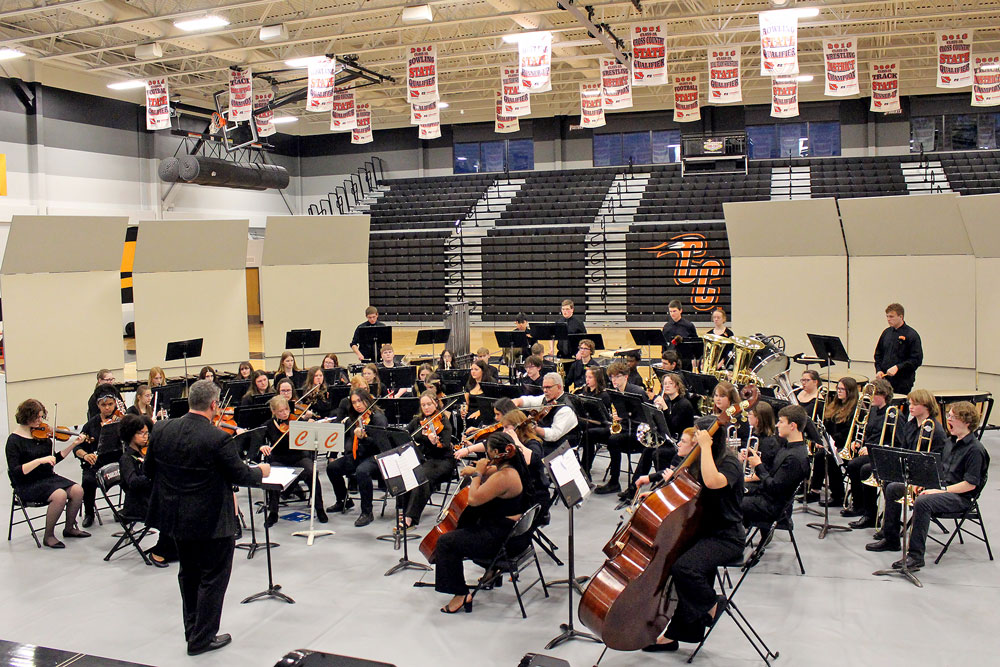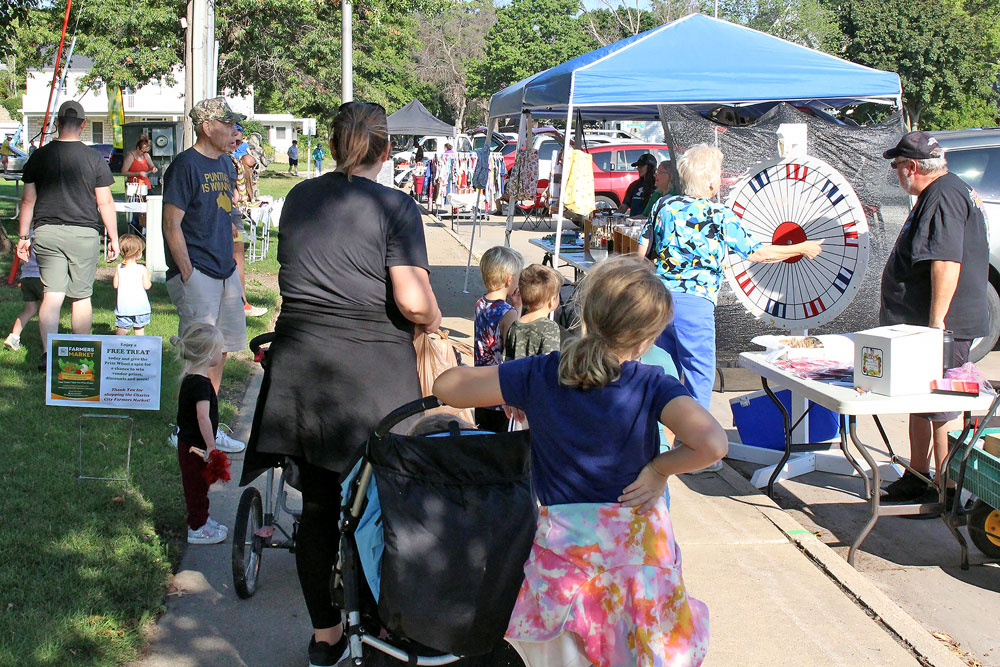Charles City telecom utility board OKs consultant scope of work, moves ahead
By Bob Steenson, bsteenson@charlescitypress.com
The Charles City Telecommunications Utility Board of Trustees approved a scope of work with a new consultant at its meeting Tuesday afternoon, potentially agreeing to an estimated $1.2 million in costs for the company’s services.
But David Fridley, a partner in FARR Technologies of Sioux Falls, South Dakota, said that fee is not necessarily additional project costs, but would replace some of the initial operations costs that would have had to be paid anyway to create a community-wide fiber optic broadband service.
“We do it a little differently from other consultants,” he said. “We basically set this up so if needed we can literally take you to a truly functional operating company.”

He said previous consultants who have worked with the utility board estimated that 10 or so employees would be needed to get the system operating, “and then you have to deal with when you’re done you don’t need that many employees to run the company.”
“The way the scope of work is set up, we could take it all the way through. It usually doesn’t happen quite that way because you start hiring personnel, or you could have a third party come in say they’re going to do the operations. … You’re paying somebody,” he said.
Fridley’s comments had been prompted by a statement made during public comments at the beginning of the meeting.
Chip Baltimore, an Iowa attorney who is a former state legislator and now works as a lobbyist and member of the Taxpayers Protection Alliance, said he was concerned that it looked like the utility board was agreeing to add another $1.2 million onto the $1.2 million it has already borrowed from the city to start up the fiber network.
“To see a $1.2 million price tag on this scope of work, in addition to what has already been spent, I find that stunning,” Baltimore said, adding that he thinks the public deserves more “certainty” and “transparency” about the project.
“As difficult as it was to obtain financing, or as impossible as it was to obtain financing under the last proposal, to double the upfront design consulting costs and then expect this to go forward with any kind of financial economic sustainability, I think is extraordinarily challenging,” Baltimore said.
The telecom board’s plan had been to be beginning construction about now, but efforts to find financing stalled last fall, and the telecom board has been looking at options on how build and finance the survice, including potentially bringing in an outside partner to help run it.
Baltimore has no apparent direct connection to Charles City, and the Taxpayers Protection Alliance has opposed municipal broadband utilities across the country, favoring instead private business approaches to offering services.
Fridley addressed Baltimore’s comments later in the meeting, saying his fees would not necessarily be additional costs, but would replace other costs that would have already been part of the project budget.
“The way we approach it is, OK, worst case, if we have to take it all the way through and hand it over and you don’t hire employees or don’t get a third party to do this stuff, we’ll keep going and start migrating ourselves out of the job,” Fridley said. “On the flip side of the ledger we’re going to lower your operating costs by doing that. So your overall budget stays pretty much the same.”
He said the people involved in financing this type of projects generally look favorably on such an arrangement, because those costs can be depreciated as part of the construction costs instead of being part of the initial operating expenses.
City Attorney Brad Sloter pointed out that FARR Technologies had agreed that if the utility board can’t come up with a project financial package that it considers acceptable, FARR won’t get paid.
“We talked at length (at the previous utility board meeting) that FARR was willing to work essentially on a contingent and deferred compensation basis, where if the board is not satisfied with the potential financial packages — is unable to finance the project — that there would not be any funds owing to Dave and FARR,” Sloter said.
“It does significantly reduce the risk to the board of incurring additional costs, because if there’s not a financeable project, then there’s nothing that’s going to be due and owing to FARR,” he said.
Fridley said, “Yeah, that’s the risk we’re taking.”
Also at the meeting, the board went into closed session to talk about its business plan and pricing under an exemption to the Iowa Open Meetings Law that allows closed sessions to discuss such matters if public disclosure would harm the board’s competitive position.
The board took no action after it came out of closed session, but at the Charles City Council workshop meeting Wednesday evening, City Administrator Steve Diers, who works with the utility board and was part of the closed session, gave a report on the telecom board meeting.
“They did go into closed session and talked about some business plan specifics revolving around a potential partnership with another entity and how that would come together,” Diers said. “It’s definitely taking shape.”
Diers said the board continues to talk about the possibility of creating the network in a series of two or three phases, and at the telecom board meeting Tuesday, Fridley had said the project looks like at least a two-year build.
Diers said, “I think the telecom board was genuinely feeling very good about what we looked at last night and what we discussed, and so they’ll be taking that back to this potential partner to start putting some price tags on what they’re going to offer, what that service would cost.
“It certainly feels like we’re moving,” he said. “We’ve been taking small steps. Now maybe we’re taking bigger steps and getting somewhere sooner than later.”








Social Share